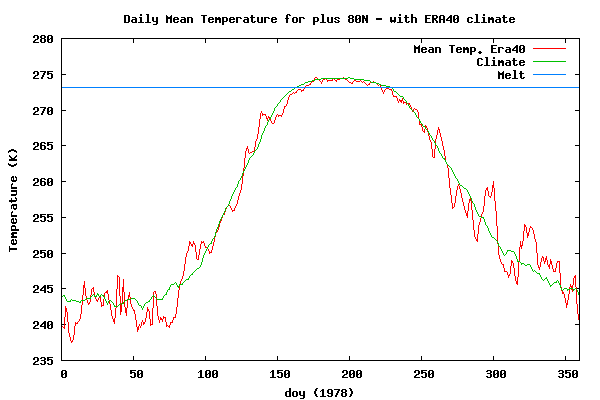Ambassadors bought their cushy new jobs
“Dad, you have got to get me out of here. Talk to Senator Griswold. After all, you paid good money for him.”
—Major Charles Emerson Winchester, from the TV series M.A.S.H.
From Wikipedia, (Note: I rarely consult Wikipedia, but this page somehow escaped Wikipedia’s apparent policy of hosting only laughably erroneous drivel):
Bribery, a form of pecuniary corruption, is an act implying money or gift given that alters the behavior of the recipient.
Bribery constitutes a crime and is defined by Black's Law Dictionary as the offering, giving, receiving, or soliciting of any item of value to influence the actions of an official or other person in discharge of a public or legal duty.
The bribe is the gift bestowed to influence the recipient's conduct. It may be any money, good, right in action, property, preferment, privilege, emolument, object of value, advantage, or merely a promise or undertaking to induce or influence the action, vote, or influence of a person in an official or public capacity.
The buying and selling of ambassadorships in the United States is certainly nothing new.
Presidents Thomas Jefferson and Andrew Jackson’s spoils systems included ambassadorial posts for top partisan allies.
Some Presidents such as the late and unlamented Richard Nixon were more avaricious.
In June 1971, Nixon told H.R. Haldeman, then White House Chief of Staff:
My point is that anybody who wants to be an ambassador must at least give $250,000… [about $1.3 million in 2009 dollars]
The contributors have got to be, I mean, a big thing, and I’m not gonna do it for political friends and all that crap.
Herbert W. Kalmbach, Nixon’s personal attorney and Deputy Finance Chairman for the Committee to Re-elect the President, (an organization possessing the most amusing acronym of CREEP), spent time, (though far, far, too little), in the crossbar hotel for arranging the sale of ambassadorships involving J. Fife Symington ($100,000) and Ruth Farkas ($300,000).
But the Nixon administration’s practice of trading foreign postings for campaign cash didn’t disappear—campaign reform laws drove it underground.
Simply writing a check doesn’t work any more. These days, the rich and connected are expected to raise money for the candidate from their well-to-do friends as “bundlers.”
According to opensecrets.org:
Bundlers are people with friends in high places who, after bumping against personal contribution limits, turn to those friends, associates, and, well, anyone who's willing to give, and deliver the checks to the candidate in one big "bundle."
Take Public Servant Obama’s latest ambassadorial appointments:
- Alan D. Solomont, ambassador to Spain
- Barry B. White, ambassador to Norway
- William E. Kennard, U.S. representative to the European Union—a position which carries the rank of ambassador.
Together, Solomont, White and Kennard bundled more than $1 million combined toward Obama's election efforts. Overall, they—along with their immediate family members—contributed nearly $2 million to federal candidates since 1989.
Solomont and Kennard each bundled more than half a million dollars to Obama's presidential campaign.
White bundled between $100,000 and $200,000. The exact amounts are unknown because the presidential campaigns provided only broad ranges when they disclosed information about their bundlers.
Solomont has been a long-time money-raising force in Democratic circles and headed Obama's fundraising efforts in the Northeast. He has been a prolific contributor to federal candidates and committees and along with his wife and children, has donated about $1.8 million since 1989—all of which has gone to Democrats.
This ranks Solomont as the largest personal contributor among Obama's ambassador picks to date, edging out donor and ambassador to Germany Philip Murphy by more than a quarter-million dollars.
Solomont was the CEO of a company called ADS Group, the biggest nursing home chain in the northeast, which is where he made his fortune.
In the midst of Clinton’s 1996 re-election campaign, (in which Solomont was also a major money-finder), as Time magazine reported, Solomont visited Secretary of Health and Human Services Donna Shalala:
…with a team of lobbyists to press for less stringent enforcement of nursing-home regulations. Solomont…kept on lobbying throughout the campaign to win major concessions for his industry over the objections of consumer advocates. He got much of what he wanted.
Kind of guy you want living next door? Or as an ambassador?
While less prolific than Solomont, Barry White has also donated large sums to federal candidates, parties and committees. Along with his wife, White has contributed about $103,000 since 1989—of which 98 percent has gone toward Democrats.
And then there’s Louis B. Susman, who, having sent over $500,000 to Democrats since 1989, is now Public Servant Obama’s appointee as ambassador to the U.K.
Here’s what the Wall Street Journal had to say about Susman on 7 July 2009:
CHICAGO -- President Barack Obama has raised some eyebrows with his decision to send as ambassador to the U.K. a little-known retired investment banker -- and top fund-raiser -- from his hometown who has little diplomatic experience.
The post at the Court of St. James's in London is one of the most prestigious in U.S. diplomatic circles. Though largely ceremonial and rarely controversial, it is a prominent position given the close relations between the U.S. and the U.K. In recent years, it has usually gone to political boosters of the president.
Still, the nomination of Louis B. Susman, whose confirmation hearing is scheduled for Tuesday, has rankled some watchdog groups and political commentators who say he was chosen chiefly because he raised money for Mr. Obama's campaign. "Clearly his appointment has nothing to do with anything but money," said Craig Holman, a government-affairs lobbyist at watchdog group Public Citizen. [emphasis mine]
So really; how much diplomatic experience do these wastes-of-space appointees have?
Bupkis.
None? Are they all inexperienced dilettantes? I hear you ask.
Generally, only ambassadors to the important nations have no diplomatic experience whatsoever: The lesser nations get the career diplomats, who are, commonly, graduates of the State Department’s Foreign Service Institute.
For example, Joseph Kennedy, Sr., JFK’s father, was one of the wealthiest Americans of his generation and a major donor to Democratic candidates, (FYI, in 1973, mob boss Frank Costello said he and Joseph Kennedy Sr. had been bootlegging partners during prohibition and Harvard classmates say Kennedy Sr. supplied the illicit booze for alumni events: It is believed, by many, Kennedy made much of his fortune through such illegal activity).
Kennedy Sr.—with no training as a diplomat—was appointed ambassador to England in the run-up to World War II, but left the post in embarrassment after making an undiplomatic comment (“Democracy is finished in England”).
Public Servant Obama also nominated Lee Feinstein, a national security and nonproliferation expert at the Brookings Institution—so, some diplomatic experience, perhaps—as ambassador to Poland.
Feinstein has contributed about $5,250 to federal Democratic candidates, parties and committees since 1999, including $2,283 to Obama during the 2008 election.
Well, what about the career diplomats?
In recent weeks, Obama nominated a career member of the Foreign Service, Alberto M. Fernandez, to be ambassador to Equatorial Guinea in central Africa.
Another Foreign Service veteran, Mary Jo Wills, is slated to become the new ambassador to the African island nations of Mauritius and Seychelles.
That’s right: The scoundrels who can move money Obama’s way get the plum jobs.
The experts, the career diplomats—without deep pockets—get what’s left.
In the November 2006 Foreign Service Journal of the American Foreign Service Association, William Davnie, a Foreign Service Officer since 1981, had this to say in his article, Political Appointees: A Cost-Benefit Analysis:
Political-appointee ambassadors constitute a perennial source of amazement, frustration, anger and sometimes even inspiration among career diplomats and observers of American diplomacy.
A June 15 International Herald Tribune column by Thomas Raleigh called for an end to, or sharp restriction of, the number of “amateur (i.e., political appointee) ambassadors.”
Raleigh focuses on the general failure of such appointees to meet the standards of the Foreign Service Act of 1980, both in terms of the skills and experience necessary to do the job, and the fact that they tend to be major political donors, not foreign policy experts.
[P]olitical appointees, who are often CEO-types, are shocked to discover the limitations on their position when they actually arrive at an embassy. On the policy side, except in a few hot spots (where political appointees only rarely land, with Iraq and Afghanistan representing exceptions that prove the rule), policy is set, and news made, back in Washington.
Ambassadors are essentially seen as messengers, and thus of little interest unless they can truly build credibility on certain issues — a worthy goal but one most appointees can’t achieve, because they don’t have the background.
At a minimum, the White House needs to take the real challenges of diplomatic service into greater account when deciding which of the major donors will receive posts, and the Senate needs to exercise its role of advice and consent with greater care.
The issue at hand is not simply the background of the nominee, which may be sterling, but the ability of the nominee to meet the distinctive challenges of diplomatic service in a new organizational environment in a new country.
In other words, leave diplomacy to the diplomats and leave the damn, idiot money-grubbers at home.
Note: From opensecrets.org you may download a Microsoft Excel-compatible spreadsheet of campaign contribution data regarding all of Obama's ambassador picks here.









No comments:
Post a Comment